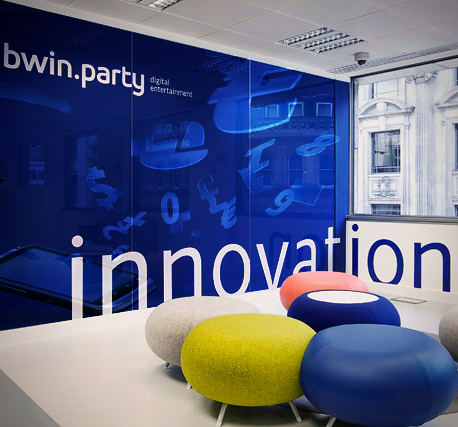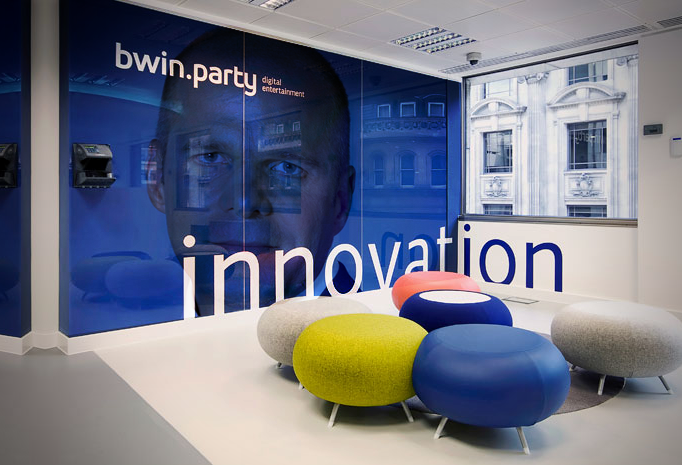Last week, Bwin.Party Digital Entertainment (BPTY.L) announced a new social gaming unit, named Win Interactive, created primarily through the acquisition of Ukrainian game developer Orneon and certain assets of Velasco Services as well. The cost of the acquisitions totaled roughly $25 million US, with Bwin.Party guaranteeing another $25 million to support the new unit through the next two years.

As our own Steven Stradbrooke noted, the market greeted the news with a yawn; BPTY fell another 2.5% during trading following the announcement, and finished the month of May down over 20%. Bwin.Party, despite the 2011 merger between Bwin and PartyGaming, has simply never overcome the damage done by its 2006 UIGEA-induced withdrawal from the US market. Indeed, in the US in 2006, PartyGaming generated some $780 million, and $500 million in so-called “Clean EBITDA” (earnings before interest, taxes, depreciation, and amortization, adjusted for one-time items) in just nine and a half months. For all of 2011, the combined Bwin.Party generated about $1 billion US in revenue but just $280 million in Clean EBITDA, a little more than half the 2006 level. (Data above comes from the company’s annual reports; 2011 figures calculated using 2011 average EUR-USD exchange rate.) It’s small wonder that the company’s stock has never neared its pre-2006 levels. In fact, BPTY (4) hit an all-time low in late 2011, rebounded, but appears to be headed toward that 100 pence level again, closing Friday at 121.10p.
Given that Bwin.Party is still valued at roughly $1.5 billion USD (about a billion pounds sterling), the $50 million social gaming initiative seems unlikely to move the stock price, particularly in the near term. But in a conference call on Wednesday to announce the new social gaming unit, Bwin.Party offered some interesting insights into its plans for the new unit – and its take on the growing social gaming phenomenon.
For one, co-CEO Norbert Teufelberger doubled down on his earlier comments about the inflated valuations for private companies in the sector. After criticizing International Game Technology (IGT)‘s $500 million purchase of Double Down Interactive in March, Teufelberger appeared to take aim at social gambling kingpin Zynga (ZNGA) on Wednesday. “Are we going to the market and paying $150-$200 million for a business which is just in place for 3-4 months; where we don’t know if it’s sustainable; where we don’t know any of those factors; (and) where we may have the management team leave us?” he asked rhetorically, possibly referring to Zynga’s $180 million purchase of Draw Something developer OMGPOP in late March. That purchase, which helped earn Zynga a coveted spot in my list of the market’s “Five Dumbest Stocks,” appears to have taken place on what Forbes called “literally the day [Draw Something] peaked.” Earlier, Teufelberger claimed that he and co-CEO Jim Ryan had kicked the tires on “maybe twenty B2C social gaming companies over the last 9 months, and Jim and I just didn’t like the valuations.”
As such, Bwin.Party is going to build out its own unit, using both in-house development and partnerships with independent studios and developers to build a gaming portfolio. Win.com, a domain name acquired in the recent maneuvering, will host a stand-alone for the company’s social gaming efforts, an effort to replicate Zynga’s rollout of its own platform earlier this year. Certainly, Bwin.Party’s cost control efforts should be lauded; relative to Zynga’s $4.4 billion valuation, the $500 million price tag for Double Down, and even Playtika’s pre-Wire Act $180 million valuation through the assumption of a majority stake by Caesars Entertainment (CZR), Bwin.Party’s $50 million cost seems more than reasonable.
Will Bwin.party succeed? Even Teufelberger and incoming unit head Barak Rabinowitz (formerly of Mytopia, whose purchase by 888 Holdings (888.L) resulted in a disastrous $20MM writedown) admitted they didn’t know, with both emphasizing at different points that the company would wait the full two years before judging the project. But both men showed a solid grasp of the challenges facing a social gaming startup, who is entering an industry where both the customers, and the competition, are growing rapidly. Teufelberger stressed that social gaming was a separate opportunity, meant to be an earnings driver rather than a marketing tool for the company’s existing real-money operations. “This is not a convergence thing,” he noted in his opening remarks. “This is not a traffic generator for our real-money sites; this is really a distinct business opportunity we are pursuing.” In fact, the co-CEO pointed out that the legacy real-money operations would benefit the social gaming unit, rather than vice versa. “We have about twenty million active [users] coming to bwin.com per year. Only three million play for real money. There is [sic] about seventeen million active users coming to bwin.com, basically not doing anything with us,” he pointed out. Those users provide Bwin.Party with the opportunity to “monetize that traffic now with a completely different strategy and a different business proposition, so it’s going to be our task to do that well. But, in itself, this is a huge advantage we have.” Rabinowitz agreed, and argued that real-money and social gaming customers, though often in overlapping demographics, are “fundamentally different.” Rabinowitz told analyst Simon Davis, “Again, it’s digital entertainment; they are not motivated purely by the prospect of making money, because there’s no cash out. So they’re motivated by different things.”
Bwin.Party’s argument – that social gaming should benefit from, rather than attempt to transition to, real-money gambling – flies in the face of the accepted wisdom that the effect should be reversed. Many analysts have predicted that Facebook (FB) or Zynga – whose own CEO called online gambling “a natural fit” – will comfortably move from social gaming into online gambling. In Zynga‘s case, such movement seems unlikely, as I argued back in April. Bwin.party’s thesis appears to be the same as mine; it is easier to acquire the expertise of social gaming, backed by the technical prowess of the legacy real-money operations, than it is for a gaming company with limited development capabilities to enter the highly regulated, highly competitive online gambling industry. The goals and desires of real-money gambling are far different from those of casual social gamers, and assuming that a gaming company – no matter how big – can simply pick up the branding, development, and marketing expertise of veterans like Bwin.Party, 888, Betfair, and the like is a dangerous assumption for investors to make.
Bwin.Party also is bucking conventional wisdom by focusing on one metric: cash returns. As Rabinowitz said on the call, “Ultimately what we’re doing is about cash. It’s about generating cash…at the end of the day, the true test is ‘are consumers willing to pay for it?’” Unlike Facebook, whose IPO prospectus led with a chart of the company’s daily and monthly active users, recalling the late 1990’s “eyeballs” metric for dot-com stocks, and Zynga, who remains unprofitable, Bwin.party is focused on the bottom line. Toward that end, the company is focused on the true growth markets in social gaming: mobile usage and emerging markets. The incoming boss noted that the growth of competition on the Facebook platform meant new games required “huge development power and marketing power to succeed.” But, in mobile, where blockbusters like Words With Friends and Draw Something have been created by tiny independent developers, “it’s still the Wild West.” Rabinowitz had claimed earlier that growth in mobile social gaming was double that of its desktop counterpart, yet another reason why Bwin.Party will prioritize mobile development as it gets the Win Interactive unit off the ground.
Win’s other priority appears to be emerging markets. The company noted that the two fastest-growing markets for social gaming were in Brazil and Turkey, with Asia representing another growth opportunity. Bwin’s sponsorship of AC Milan means that there are millions of Bwin jerseys across China, as Teufelberger noted; as the co-CEO also pointed out half-jokingly, no one in China knows exactly what Bwin is, given the company’s non-existent presence there. “Now we can fill the brand with some meaning,” Teufelberger told listeners.
I am still relatively bearish on BPTY stock, although the recent slide toward historic lows makes the valuation more acceptable. The company, unlike counterparts like 888, Paddy Power (PAP.L), and Betsson AB (BETSB.SS), is simply not showing revenue growth in its legacy markets, and has struggled to execute well since its 2006 exit from the US. The social gaming venture is unlikely to change that much, if at all; even a successful launch of Win Interactive is unlikely to add material support to earnings and cash flow for several years. But with some other recent good news – such as new licenses in Spain and Germany – the company may finally be getting its act together. As pessimism about the world economy and the future of Europe continues to damage stocks, BPTY may get cheaper, and possibly cheap enough to buy.
But the company’s social gaming strategy, while not yet material to the company’s share price, offers an interesting, common-sense look at an industry that has shown signs of a bubble. Companies must focus on mobile, focus on development, focus on emerging markets, and, most importantly, focus on cash. With the hype about December’s DOJ opinion fading, and iGaming legalization moving at the predictably slow pace of bureaucracy, the optimism surrounding social gaming will start to lessen. The market will begin to focus on more traditional fundamentals: margins, cash flow, and earnings. Bwin.Party is not yet a force in the sector, but its attitude and its planning should be of interest to investors in companies like Zynga, King.com (who is planning its own IPO), IGT, Electronic Arts (EA) and the like. There are billions to be made in social gaming; but the winners have yet to be determined.
